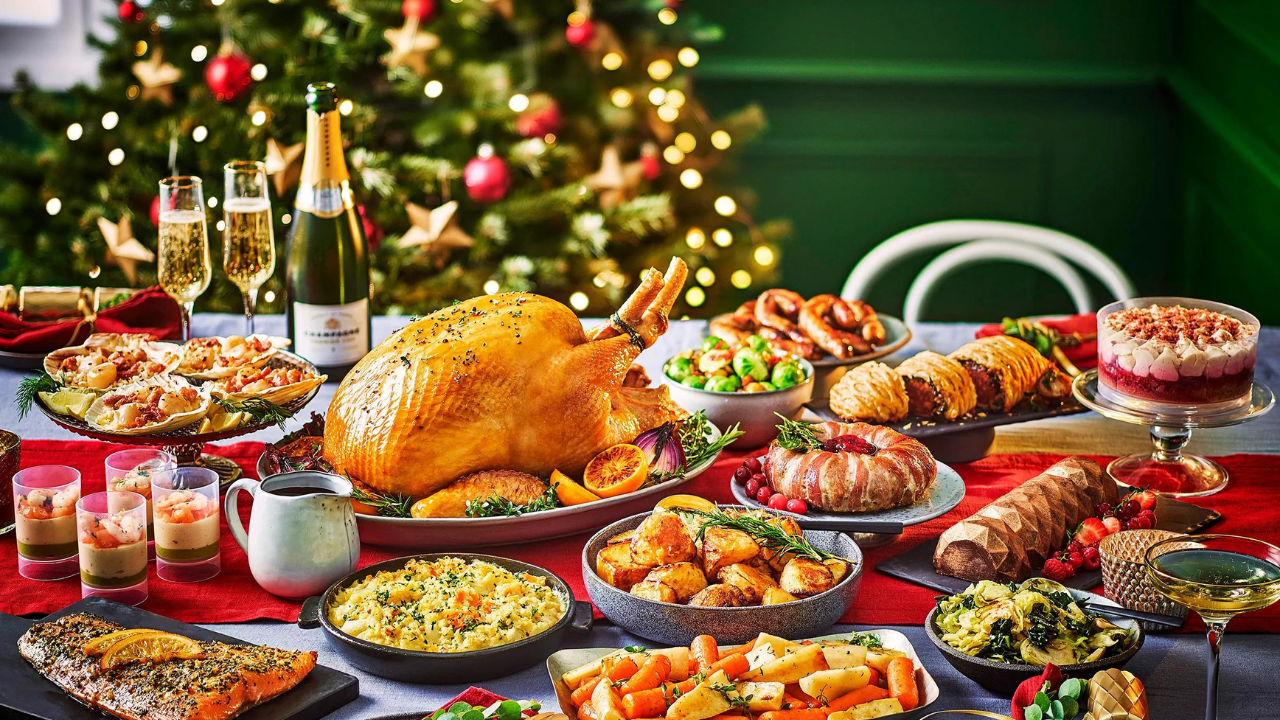
For most of us, the festive season is for eating all the food you can and drinking all the booze you find (well, at least trying to). However, it's also an extremely busy time, often filled with lots of get-togethers and Christmas parties. This makes getting enough sleep extremely important, especially if you've got lots of organising to do.
However, according to a recent study, we lose a lot more sleep around the holidays than at any other time of the year, and it's our dietary choices that could be to blame. With this in mind, Mattress Online consulted with nutrition specialists to advise on foods that should be avoided this Christmas, especially if you're after a restful night's sleep. The brand then told us this advice, and it's what we'd like to share with you today.
Before we start, have you seen the 3 ways to cook a Christmas turkey in an air fryer?
The worst festive foods for your sleep
1. Mince Pies
If you’re looking for a restful Christmas break, consider cutting down on those mince pies. Sugar has been linked to disturbed sleep patterns and more restlessness during sleep as it disrupts our blood sugar levels, making it difficult to fall asleep. It therefore might be a good excuse to have those mince pies for lunch, or even breakfast!
2. Ice cream
Dairy can be high in saturated fat, which is often the cause behind lighter and less restorative sleep. Many people also struggle to digest dairy, which could upset your stomach and keep you up at night. As tempting as that big tub of ice cream might be when settling down to watch a Christmas movies, why don't you give it a miss and opt for something else instead? Speaking of Christmas movies, have you seen our guide to the 7 best Christmas movies and where to stream them?
3. Citrus fruits
Citrus fruits are a staple of Christmas, especially when it comes to mulled wine. However, citrus fruits such as clementines, oranges and lemons can disturb your sleep. This is because they are likely to produce more acid in your stomach and worsen reflux symptoms during sleep.
4. Alcohol
Alcohol is everywhere at Christmas, and although the nighttime sherry might make us sleepy, it doesn’t allow for a deep restorative sleep. Increased alcohol consumption can also lead to hangover effects like headaches, digestive discomfort, tiredness and thirst. These effects can significantly affect your daily functioning and even disrupt sleep quality the following night. Why don't you check out our 3 best non-alcoholic drinks to go for instead?
5. Festive coffees
Gingerbread lattes and peppermint cappuccinos are well loved at Christmas, but it's widely known that caffeine is a sleep disruptor. Studies have shown that consuming 400mg of caffeine six hours before bedtime can postpone sleep by as much as one hour.
Interested in more? Check out these 7 sleep tips to reduce stress and avoid insomnia over Christmas.







